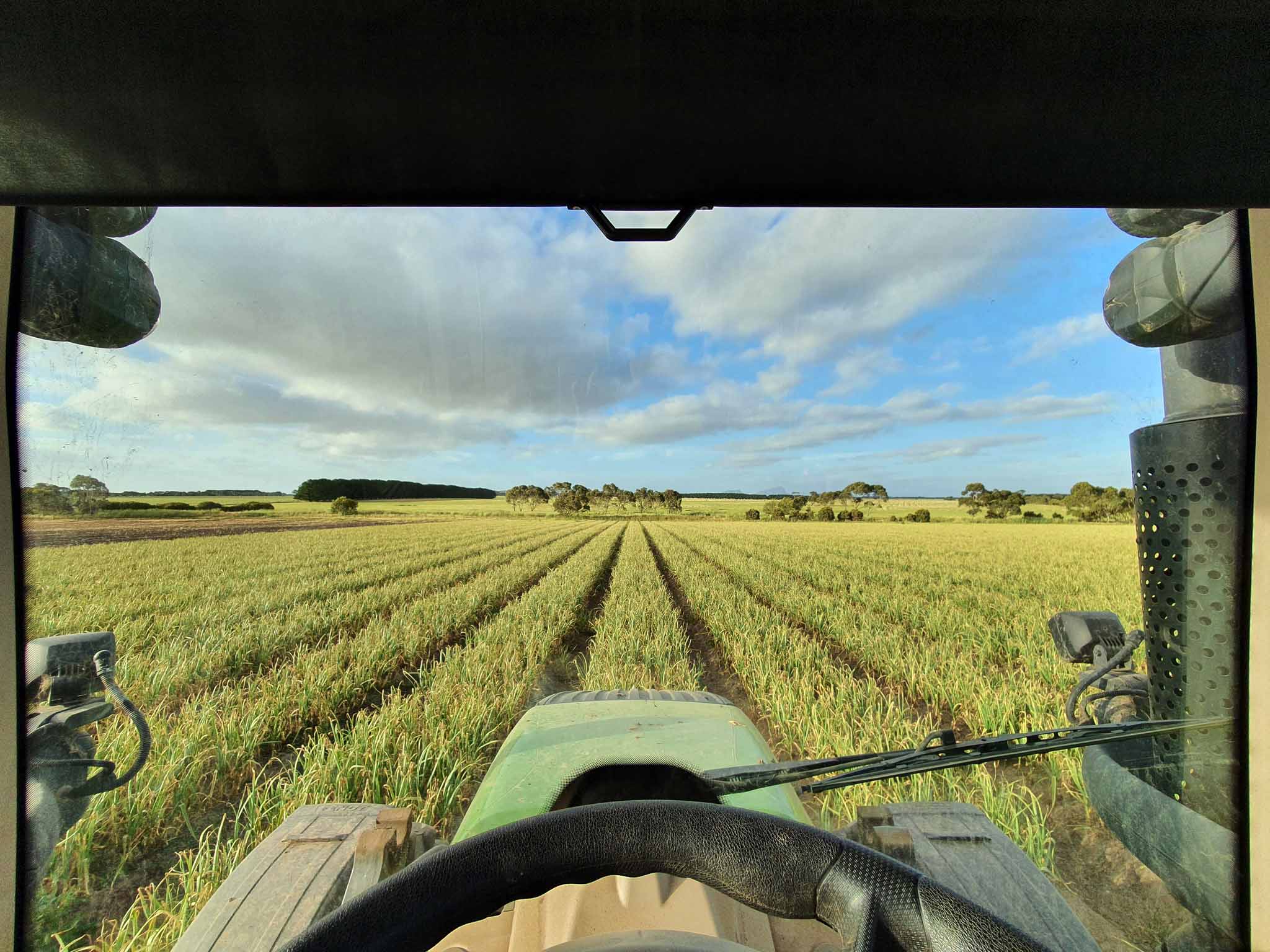
VICTORIAN farmers are taking a more pessimistic outlook on the year ahead, despite the state currently enjoying “generally good” seasonal conditions in most areas, the latest quarterly Rabobank Rural Confidence Survey has found.
Though down on last quarter, the decline was relatively small compared to falls in rural confidence seen in other states this quarter, with Victorian farmers also more positive than the rest of the nation.
The survey, released Wednesday, found net rural confidence in the state has declined from -24 per cent last quarter to -31 per cent, with 44 per cent of Victorian farmers now expecting business conditions to worsen in the coming 12 months (up from 37 per cent with that view in the previous quarter).
While 42 per cent expect agricultural economic conditions to stay the same, only 13 per cent of farmers anticipate an improvement (unchanged from quarter two).
The chief cause for concern for those Victorian farmers expecting agricultural business conditions to decline is lower commodity prices - nominated by 75 per cent of those with a pessimistic view on the year ahead (up from 58 per cent in the previous quarter).
The prospect of deteriorating seasonal conditions was also a growing worry for those with a pessimistic outlook - cited by 21 per cent this survey (up from 12 per cent previously).
Of those Victorian farmers expecting the agricultural economy to improve in the coming 12 months, commodity prices were instead cause for optimism - with rising commodity prices identified as a driver of positive outlook by 66 per cent.
Rabobank Southern Victoria and Tasmania head of relationship management, Daker Pern, said while farmers across much of the state have enjoyed a strong start to the season, they are now very aware of the potential of drier conditions ahead, and this outlook will be weighing on their minds.
“In East Gippsland - around Sale and Bairnsdale - it is drier than normal, and farmers have been irrigating in recent weeks,” he said.
But for most of Victoria, farmers have experienced a strong growing season.”
Victorian grain producers are the most optimistic of all the state’s farmers, with 73 per cent anticipating agribusiness conditions to improve or remain unchanged in the year ahead (up from 50 per cent previously).
Mr Pern said farmers are apprehensive about how the season will “finish” in grain growing regions.
“Grain markets are reasonably steady at present and growers have had a good season to date, but they are now worried about weather forecasts and what the finish to the season might look like,” he said.
While confidence within the Victorian dairy sector has fallen, more than half (58 per cent) of dairy producers surveyed expect the agricultural economy to improve or stay the same in the coming 12 months - albeit back from 66 per cent in the previous quarter.
“The competitive domestic dairy market has been delivering strong prices for Victorian dairy farmers,” Mr Pern said.
“This strong market means dairy producers are continuing to invest back into their businesses. This quarter, dairy farmers have the strongest investment intentions in Victoria, with 35 per cent planning to increase investment in the year ahead - taking the opportunity to upgrade dairy facilities and irrigation infrastructure.”
Beef and sheep producer confidence has also been impacted by softening commodity prices this quarter.
Of the 40 per cent of Victorian beef producers who are now expecting the agricultural economy to worsen in the next 12 months (up from 18 per cent in the previous quarter), 76 per cent cited falling commodity prices as their major concern.
Mr Pern said livestock producers are dealing with a “double whammy” of easing commodity prices and the prospect of a drier year ahead.
The survey found of the 61 per cent of the state’s sheep producers this quarter who are expecting the agricultural economy to worsen (up from 53 per cent in the previous survey), 89 per cent hold concerns about falling commodity prices.
“In terms of the seasonal outlook, it’s the potential of what may happen - not what is actually happening - that has Victorian producers concerned,” Mr Pern said.
Overall this quarter, more Victorian farmers are looking to decrease investment in their farm business in the coming year - at 21 per cent (up from 16 per cent previously).
“While farmers are refocusing their investment plans, we are noting an increased interest in spending on infrastructure that will deliver labour and or energy efficiency,” Mr Pern said.
Of those Victorian farmers expecting to boost their investment, there was increased appetite for on-farm infrastructure - such as fences, yards and silos (at 78 per cent, up from 62 per cent in quarter two), property purchases (33 per cent, up from 23 per cent), and irrigation/water infrastructure (29 per cent, up from 20 per cent).
Debt is expected to increase, with 18 per cent of Victorian farmers surveyed indicating they expect their debt to rise (up from 12 per cent in quarter two) and 21 per cent expecting to decrease debt (down from 31 per cent).
And of those Victorian farmers planning to increase their debt, the proportion looking to use borrowings for working capital decreased from 26 per cent to 18 per cent, while the proportion wanting to expand their farming operations increased from 19 per cent to 24 per cent.
The Rabobank Rural Confidence Survey questions an average of 1000 primary producers across a wide range of commodities and geographical areas throughout Australia on a quarterly basis and has been run since 2000 by an independent research organisation.
The next results are scheduled for release in December 2023.